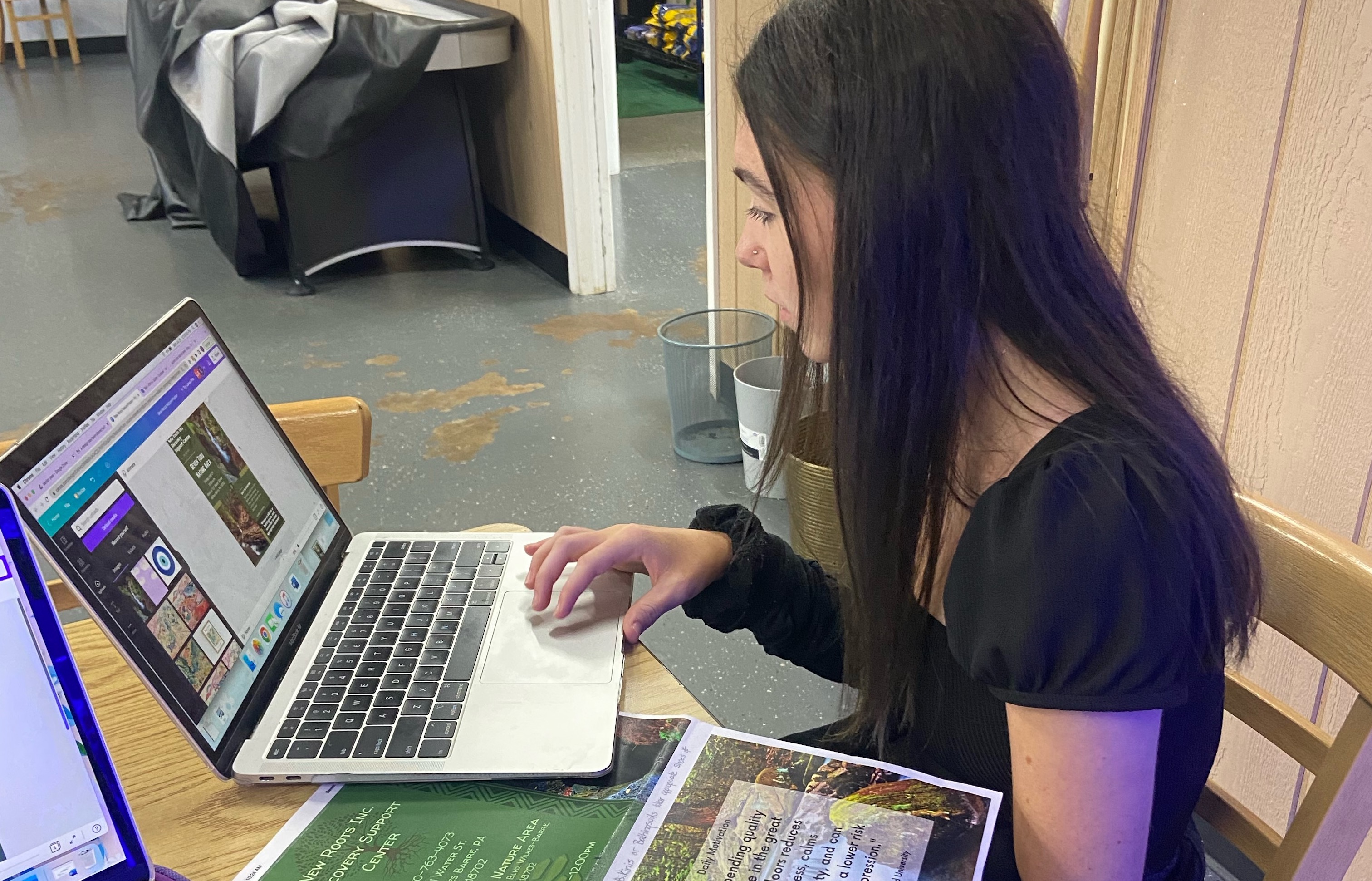Summer Spotlight: Erin Quinn '23

Erin Quinn '23 is an occupational therapy major who completed a 40-hour summer fieldwork assignment at New Roots Recovery Center in Wilkes Barre, PA.
Here, she answers questions about her experience.
What were your everyday responsibilities?
My primary responsibility as a Level I fieldwork student was to observe the Certified Rehabilitation Specialists (CRS) while they worked with clients. I also assisted in the documentation process, which involved inputting information about clients into a computer program.
What is the goal of fieldwork for occupational therapy students?
Fieldwork is designed for OT students to gain experience in multiple sectors of OT practice. As a Level I fieldwork student, I was able to observe typical days at a mental health clinic and execute some of the skills I learned last semester in my mental health lecture and lab.
What did you enjoy most about the job?
The most enjoyable part of my fieldwork experience was connecting with clients who attended the clinic. Developing a bond and trust between clients and clinicians is one of the most unique and enjoyable parts of occupational therapy.
How do you think this prepared you for your future as an occupational therapist?
This experience was designed to prepare me for the mental health field. After the week of observation, I feel better equipped with activities and skills that can be used to guide therapy sessions.
How do you think your courses at the university prepared you for your fieldwork?
A few of my courses have prepared me for this experience. First, my mental health lecture and labs taught me various occupation-based activities to do with clients. These courses also helped me gain an in-depth understanding of various mental health disorders that the clients at my fieldwork site presented with.
Also, I took a group dynamics course which taught me how to lead group sessions. While this fieldwork experience was mostly observational, I did witness many group therapy sessions, so I was able to analyze them using the knowledge I gained from this course.
How does this connect to the university's Jesuit ideals of being men and women for others?
The field of occupational therapy, as well as this mental health clinic, have evident roots in client-centered practice. This means that the client is central to the healing process, and we use their wants, needs, and experiences to personalize their interventions. A client-centered view connects to the Jesuit ideals of being men and women for others because it demonstrates the concern for and dedication to serving others.






